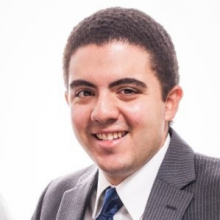
Kareem Hekal
At the time of this interview, Kareem worked as an Associate at Deutsche Bank. Since, he worked as a VP of Deutsche Bank and now is a VP at Societe Generale.
Kareem's Background:
Kareem majored in economics and foreign affairs at UVA. As a student, he worked at a golf club and found work opportunities by calling and emailing alumni whom he met at the club. Between his third and fourth years, he interned at the Royal Bank of Scotland (RBS), developing an interest in capital markets. After graduation, he worked at Mizuho for three years before contacting a recruiter at Deutsche Bank, where he is now an associate focusing on the aviation industry.
Questions:
Generally, what does someone working in capital markets do?
I actually work in a hybrid of capital markets and investment banking (refer to Jamie Schlim’s answer for details on investment banking); there are lots of individual teams that work on certain projects. In a nutshell, capital markets teams talk to investors and raise money for them. So for example, as someone working closely with the aviation industry, we structure aircraft leases such that the companies leasing can borrow money long-term against those leases.
How did your major(s) translate to your career?
One of the most important aspects of finance is the ability to understand concepts. Financial statements and models have numbers, but to understand them requires the ability to grasp their relationship to each other and non-numerical concepts. Obviously, a liberal arts education can do a good job with honing that, plus communication, which is also an important skill.
Can you share your insight on how to build skillsets outside of coursework?
Reading a lot of current affairs and financial news is a good thing to do. In every one of my workplaces, we’ve had MSNBC on in the background, and those panels are pretty helpful too if you’re into TV. Also, while reading or watching, write stuff down that you find interesting and think about them.
Which Excel formulas should you know off the top of your head for the job?
I use pivot tables and v-lookup a lot. SumIF is also common. In terms of more complex models, we have modeling teams and modeling templates to refer to; it’s very rare to have to build an Excel model from scratch in my job.
What advice for recruitment/virtual recruitment do you have?
It’s a good idea to put your hobbies and interests on your resume, even if they aren’t work or merit-related. In terms of interviewing advice, it’s difficult to get reads on people virtually; don’t get discouraged if the interviewer’s body language doesn’t come across as welcoming or impressed.
Favorite/least favorite thing about your job?
My favorite thing about this job is that everything can change in a day. The nature of deal-making requires you to be on your toes all the time, and I like that. My least favorite things are the egos I deal with; I talk to CEOs, managing directors, and partners at law firms - all of them want to get their word in when we meet and sometimes they bicker with each other.
If you had a change of heart while working, how difficult would it be to switch to a different area of finance?
I assume we’re talking about staying in the company. In that case, it’s pretty easy. A few people in our group came from sales and trading. Don’t try to switch within your first six months of the job; try to get used to your position first. But if you do decide you want to switch later, banks usually prefer that over letting you go.
What are interviews like?
Initial screening interviews are done over phone. The first round interviews are done with junior employees, and focus on behavioral stuff. Then you meet with more senior people, like managing directors; these interviews are more technical, and you may be asked about current happenings or concepts like EBITDA and factors that affect it.
